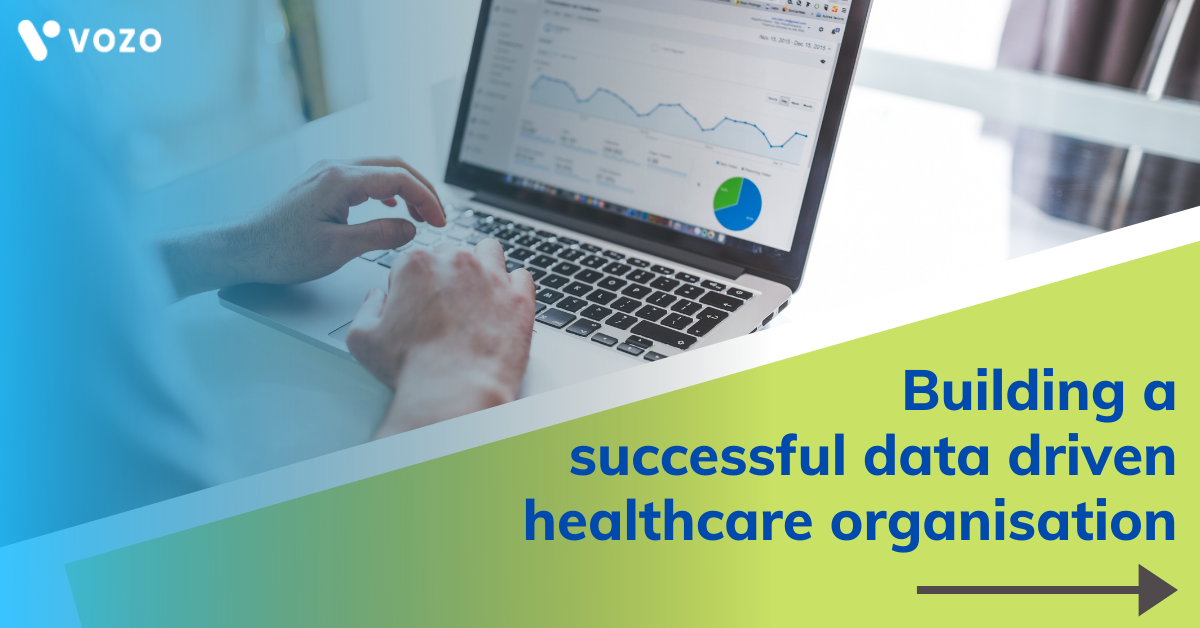Building A Successful Data Driven Healthcare Organisation
As we move into the digital world, today data has become inevitable in healthcare sector. Right from patient appointment to billing process data is everywhere.
The high adoption of healthcare analytics is fueled by the need to manage complex and diverse data sets, changing regulations, and increased innovations from population health management to value-based care and precision medicine. In this article we describe you the best ways for building a successful data driven healthcare organisation.
The ongoing challenge
Medical records typically contain free-form text such as unstructured patient notes, information about medications, medical orders and discharge summaries, to name a few. Besides, massive amounts of medical imaging data such as radiology, cardiology, oncology and pathology images coexist alongside healthcare operations data.
However, traditional healthcare information systems are mostly packaged systems procured from different vendors to serve specific operational functions and get deployed in a siloed manner without any integration and interoperability, resulting in siloed data generation and storage. There have been attempts to mine data using methods such as traditional data warehouses; however, such practices don’t suit and scale to the needs of varying formats of structured, semi-structured and unstructured data.
Several other factors contribute to a lack of data analytics and business intelligence maturity. Research evidence shows that most healthcare organizations lack skilled analytic resources, technical integration across multiple platforms, systems of truth for critical data and information entities, and data governance, which are vital prerequisites for implementing data platforms. Finally, there is a great need for finding a synergy linking business outcomes with technical implementations.
Actions to be taken
Healthcare organizations must realize that the future will be heavily data-driven. There are emerging fields of genomics, radiomics and precision medicine that deal with the analysis and processing of massive amounts of data. Very soon, I believe all healthcare organizations will have to embrace such emerging practices for more significant benefits to advance patient care.
READ MORE: 5 Steps For Successful Healthcare Data Migration
Healthcare organizations must be more entrepreneurial in investing in and sponsoring innovative data-driven initiatives. They must shun the typical laid-back mentality that they can wait until some capability becomes a packaged commodity. Instead, they can drive innovation from within and incubate new capabilities before such capabilities are ready for general consumption.
Healthcare systems must develop an organizational structure to perform data analysis and manage the enterprise-wide flow of information. At the initial level, this means that the frontline staff uses analytics tools to gather the most important information to improve operational excellence. As an organization grows, this will have a significant impact on building a more meaningful structure and use of data. This structure will continue to evolve around systems optimization and data integrity – while promptly responding to data requests.
Make data a significant part of the company culture, where stakeholders are up-to-date with relevant statistics that impact organizational performance. These statistics can go on the dashboards and conference room walls for analysis and strategic roadmap. While tools and resources help digital transformation, creating transparent healthcare analytics data on performance against strategies can have a significant impact on organizational culture.
Final Thoughts
For most healthcare systems, becoming a data-driven organization is somewhat unplanned and happens by chance—resulting in responding to value-based care analytic requirements and cost pressures. They witness the benefits of data-driven decision making to build more mature strategies and solutions to support overall processes over time.
About the author

With more than 4 years of experience in the dynamic healthcare technology landscape, Sid specializes in crafting compelling content on topics including EHR/EMR, patient portals, healthcare automation, remote patient monitoring, and health information exchange.
His expertise lies in translating cutting-edge innovations and intricate topics into engaging narratives that resonate with diverse audiences.














